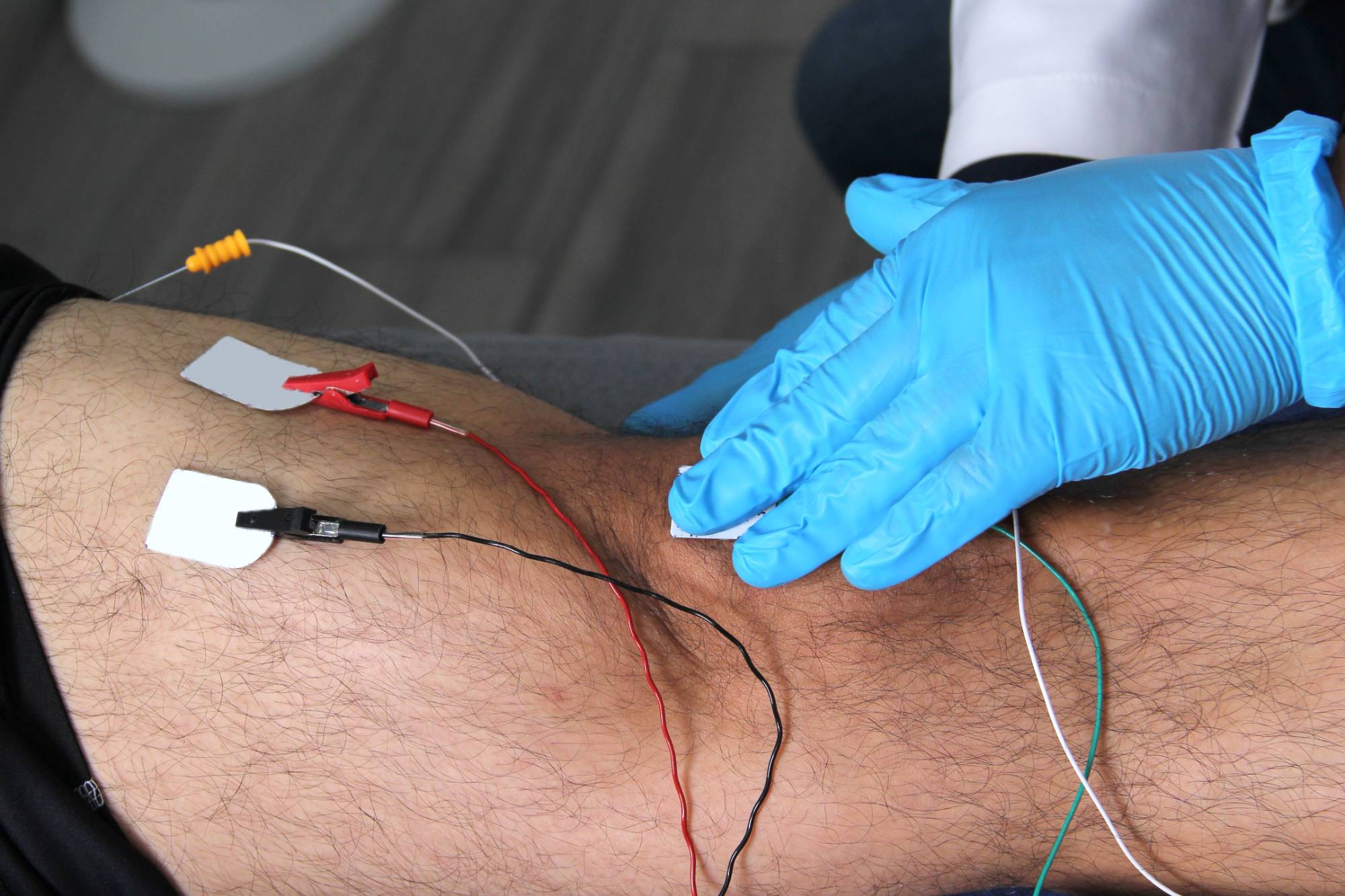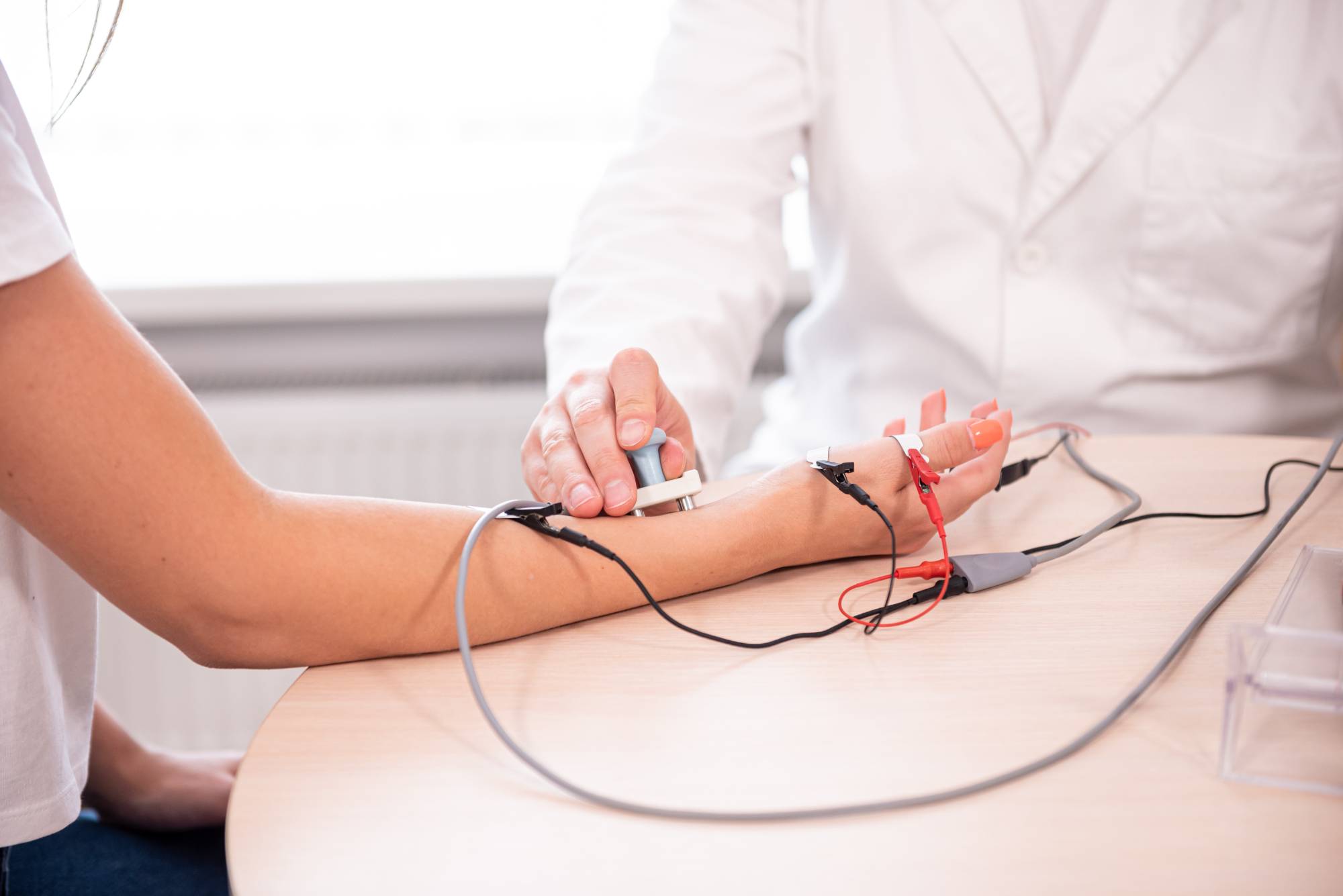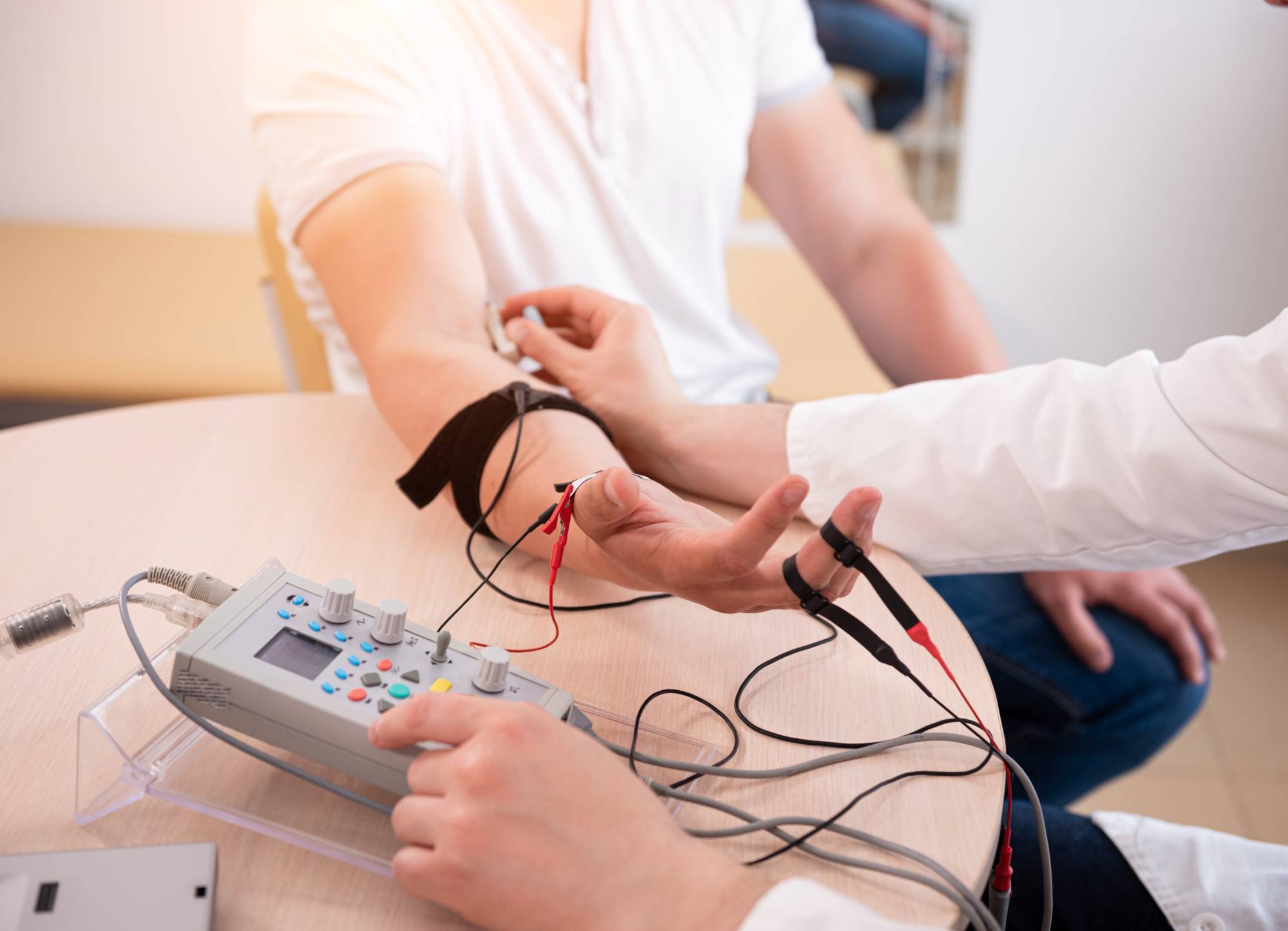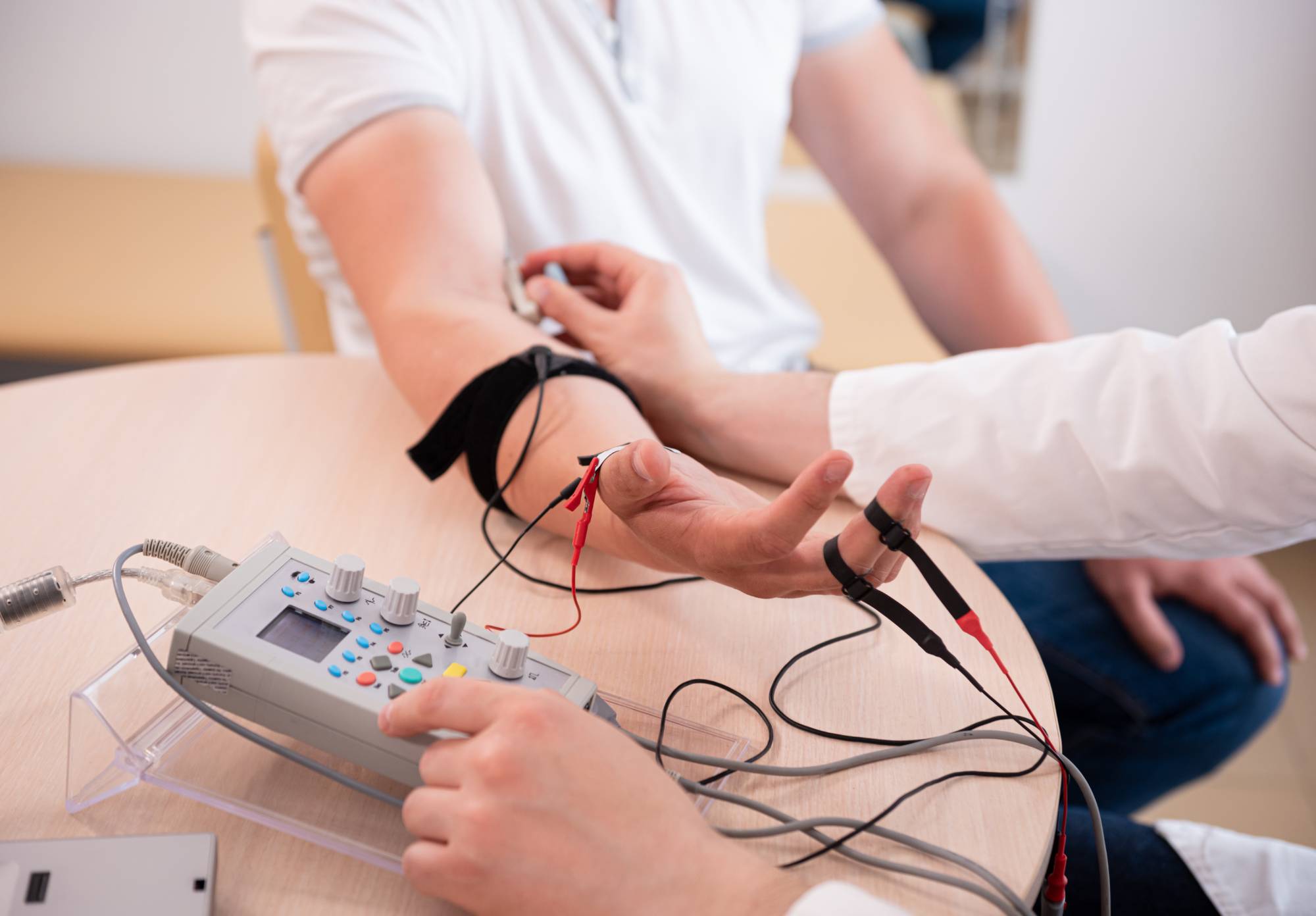Advanced electromyography testing that pinpoints exactly what’s causing your numbness, tingling, or muscle weakness.

Reviews

You’ve been dealing with unexplained numbness, tingling, or muscle weakness for weeks or months. Your primary care doctor suspects nerve damage but can’t give you definitive answers. That uncertainty is frustrating, especially when symptoms interfere with work, sleep, or daily activities.
EMG testing and nerve conduction studies provide the clarity you need. Within 30 to 60 minutes, you’ll know whether your symptoms stem from nerve compression, muscle disorders, or other neurological conditions. No more guessing about carpal tunnel syndrome, sciatica, or diabetic neuropathy.
The results guide your treatment plan immediately. Whether you need physical therapy, medication, or surgical intervention, you’ll have a clear path forward instead of continuing to wonder what’s causing your discomfort.
NY Spine Medicine brings advanced neurological testing to Miami Beach with board-certified specialists who understand nerve and muscle disorders. We have performed thousands of EMG tests, helping patients throughout South Florida get accurate diagnoses for complex symptoms.
Our team uses state-of-the-art electromyography equipment to ensure precise results. Every test is conducted by our experienced technicians who prioritize patient comfort while maintaining diagnostic accuracy.
Located conveniently in Miami Beach, we accept most major insurance plans and offer flexible scheduling to accommodate urgent diagnostic needs.

Your EMG test begins with a consultation about your symptoms and medical history. Our specialist explains exactly what to expect during both the electromyography and nerve conduction portions of the test.
During nerve conduction testing, small electrodes are placed on your skin to measure how quickly electrical signals travel through your nerves. This part takes about 15-20 minutes and feels like mild electrical pulses. The electromyography portion involves inserting thin needle electrodes into specific muscles to measure electrical activity. While this sounds uncomfortable, most patients describe it as similar to acupuncture.
The entire process typically takes 30-60 minutes depending on which nerves and muscles need evaluation. Results are available immediately, and your specialist explains what the findings mean for your condition and treatment options. You’ll leave with a clear understanding of your diagnosis and next steps.

Ready to get started?
Your EMG testing includes both electromyography and nerve conduction studies to provide a complete picture of your neurological function. The comprehensive evaluation can diagnose conditions like carpal tunnel syndrome, ulnar neuropathy, radiculopathy, peripheral neuropathy, and various muscle disorders.
Testing covers multiple nerve pathways and muscle groups based on your specific symptoms. Whether you’re experiencing hand numbness, leg weakness, or unexplained muscle pain, our diagnostic approach is tailored to identify the root cause of your discomfort.
You’ll receive detailed results explanation, written reports for your referring physician, and specific treatment recommendations. We coordinate with physical therapists, orthopedic surgeons, and other specialists when additional treatment is needed. Insurance pre-authorization is handled by our office staff to minimize your out-of-pocket expenses.

New York:
Florida:
Support